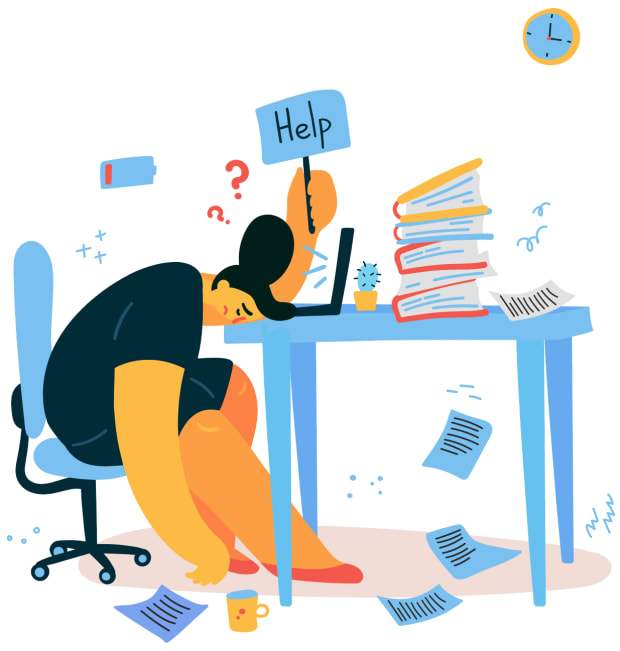- Like
- SHARE
- Digg
- Del
- Tumblr
- VKontakte
- Flattr
- Buffer
- Love This
- Save
- Odnoklassniki
- Meneame
- Blogger
- Amazon
- Yahoo Mail
- Gmail
- AOL
- Newsvine
- HackerNews
- Evernote
- MySpace
- Mail.ru
- Viadeo
- Line
- Comments
- Yummly
- SMS
- Viber
- Telegram
- JOIN
- Skype
- Facebook Messenger
- Kakao
- LiveJournal
- Yammer
- Edgar
- Fintel
- Mix
- Instapaper
- Copy Link
Q: I feel tired a lot. I just don’t have the energy to accomplish what seems like a normal amount of work, errands, and a little play in my day. What’s wrong with me?
A: Lack of energy is a very common concern and has many possible origins. Likely it’s a combination of a few different things, so let’s go over the basics to start. It’s important to rule out (test for) anemia and low thyroid function.
Anemia
Menstruating women who bleed heavily (more than 3–4 super tampons a day for more than 4–5 days a month) may not be replacing red blood cell loss, and therefore can’t deliver oxygen optimally to the brain, heart, and large muscles. Anemia absolutely causes fatigue, and usually a feeling of being cold. An inexpensive blood test (CBC, or complete blood count) can quickly show if anemia is the problem.
Related: All About Iron
Thyroid
Another major contributor to low energy is hypothyroidism, or low thyroid function, which has become rampant in the past 20–25 years. Thyroid problems used to be quite rare, but because of the enormous burden of new chemicals and plastics on the planet, our bodies are constantly working against “foreign” substances in our air, water, and soil. We can, and will, adapt, but evolution is the long game. It’s trickier short-term. The only solution to current levels of pollution is to do your very best with the fundamentals of maintaining good health whenever you can.
If your fatigue is linked to low thyroid function, you may be able to turn it around without medicine. The screening test is TSH—thyroid-stimulating hormone, which is made in the brain. A TSH reading over 5 signals that you may not be making enough of the hormone thyroxine. Thyroxine acts like a gas pedal in your body. When you need to rev up, get warmer, get your digestion going, get your heart pumping, the thyroid gland should produce thyroxine. And every cell in the body has receptors for thyroxine.
Sometimes the thyroid gland gets clogged up and just can’t pump out enough thyroxine. Sometimes we don’t have enough of the building block (iodine) in our diets. Many people with low thyroid function actually have an autoimmune disease that causes the body to start attacking the thyroid gland. Work with a healthcare provider to sort this all out. Beware the medical professional who just wants to give you a prescription (or in the case of overactive thyroid, irradiate and kill the gland) right off the bat. Don’t be too hasty! Get a second opinion. Drugs and/or surgery should be your last resort.
Related: The Fatigue Fix
Healthy Energy Boosts
Nutritional supplements—including iron, herbal nervines, and digestive enzymes—can be helpful in resolving fatigue. Because of our indoor lifestyle, most of us are deficient in vitamin D3, vitamin K, and melatonin. Unless you drink a lot of fresh orange juice or use a lot of fresh lemon juice, you’re probably not getting enough vitamin C either. It’s the basic nutrient required for all tissue repair, and it’s also crucial for balancing sympathetic and parasympathetic nervous system responses (fight or flight versus calm).
Lifestyle adjustments are also crucial when fighting fatigue. Bodies need to move. Take a walk. Take the stairs. Dance around the living room. Just do it. And while you’re moving, stay well-hydrated. Dry tissues are more easily damaged, less resilient, and literally less energetic—less oxygenating blood flows through dry tissues. Start the morning with a big glass of water (room temperature or warm), and keep going. Drink water between meals and during exercise. Keep track. Have a few favorite glass or stainless water bottles and fill them daily. I like to fill my water bottles with tap water in the evening before I go to bed, then leave the lid off overnight so the city chlorine can out-gas.
did you know …If you rule out anemia and low thyroid, other potential causes of fatigue include low blood pressure (POTS), low adrenal function (Addison’s), and poor sleep.
Speaking of water, one of my favorite health-promoting, self-care activities is cold water walking. Run cold water into the tub ankle deep while dry-brushing your whole body. Then walk in place in the tub for 60 seconds (you can start with 30 seconds—or if this doesn’t appeal, just rinse with cold water after every shower or bath). Now that I’m brave and have been cold-water walking in the morning for years, I sit down and splash my belly and low back, then kneel and put my forearms in the cold water. Who needs coffee after a cold dip first thing in the morning?
Finally, I can’t emphasize enough the importance of making good food choices all the time. In general, you want your diet to promote tissue healing, and not inflammation. The basics of an anti-inflammatory diet are well known—mostly veggies, fish not red meat, good olive oil (raw or gently heated), no deep-fried anything, and whole grains such as rice, quinoa, and barley. Avoid processed foods like the plague (just say no to chips, cookies, and crackers). Snack on nuts, carrot sticks, sliced apples, and celery instead.
Choose your food wisely—it can make all the difference.
What About Coffee?
Coffee is probably the most common substance people turn to when they’re feeling drained. And it’s not the worst thing in the world if used intelligently. It can help your brain and motor reflexes short-term. Some studies have shown that moderate coffee drinking promotes cognitive function and longevity. People can lead healthy, productive lives and be coffee drinkers—but coffee is not the secret sauce!
Coffee is a potent vasoconstrictor, which means it causes blood vessels, especially smaller ones, to clamp down and reduce blood flow temporarily. Most migraines are caused by too much blood going to the head, which is why people get bad headaches when they quit coffee. This is one reason why it’s wise not to start. If you have a cup a few times a month at a special café, that’s fine. But for daily consumption, go for hot lemon water in the morning instead.


